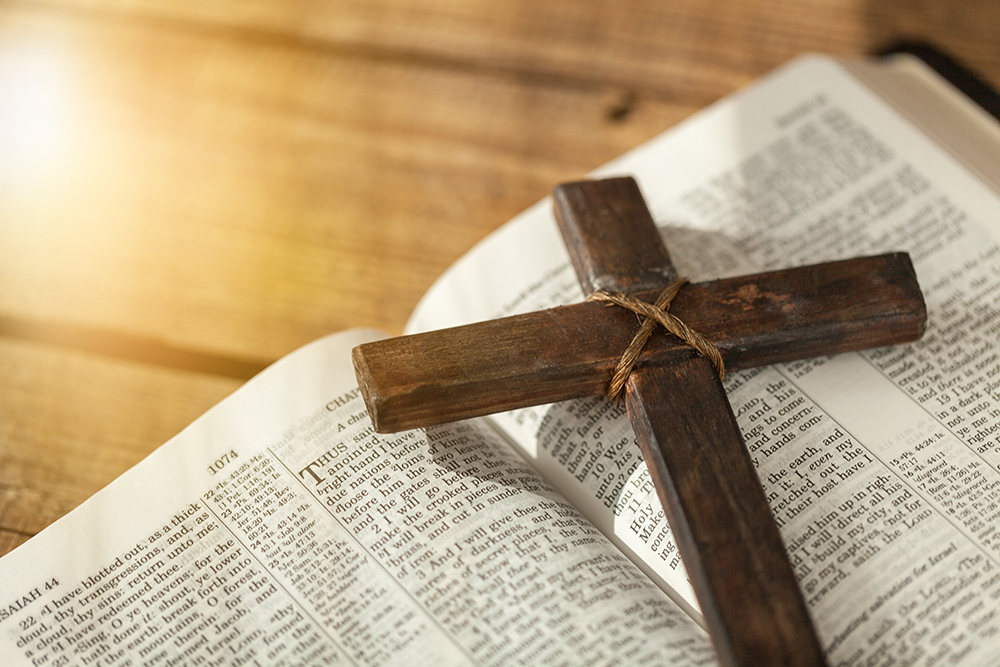This is the first in a seven-part “Introduction to Theology” series from Simply Catholic. Read the entire series here.
Often people look at theology as an academic discipline in which people talk about subtle nuances that have little to do with Christian living. Then there are those outside of Christianity who question it as a discipline at all because faith, in the eyes of many, is unreasonable.
But theology is a proper field of study, and one with an ancient tradition. Scripture itself is not only a source of revelation but is a type of theological work. And St. John Henry Newman, in his “The Idea of a University,” presents theology as the hub of all the sciences, because God is at the center of all creation.
What, then, is theology?
Theology is rooted in two Greek words: Theos, meaning God, and logos, meaning reason. Theology is using our reason to study and know more about God and how he has shown himself to the world. There is a discipline known as “natural theology,” whereby we are able to study certain truths about God, including the fact that he has created the world and the fact that God exists. As St. Paul makes clear that God’s existence is revealed through his creation, the truth of natural theology is knowable by reason alone. “Christian theology” is when we use our reason to study and know more about God and how he has shown himself to the world. The object of study is God and his revelation, including how he had revealed himself to Israel and in the definitive revelation in his Son, Jesus Christ, which is especially manifested in Scripture and Tradition. Theology often goes further than this by applying what we know about revelation to new topics and social phenomena. In short, because God touches every facet of our existence, theology deals with the whole of life.
Theology, then, is not a discipline reserved to academics, though the academic realm is absolutely vital to theological knowledge and development. Instead, Jesus redeemed the whole of man, including our brains. In return, he desires that we use them. More importantly, by growing in our knowledge about the Faith through theological study, we grow in love for Jesus Christ. If we love him, we want to know everything we can about him, because love wants to know. By studying and reflecting with our mind on the content of faith, we also fulfill St. Peter’s command: “Always be prepared to give a reason for the hope that is within you” (1 Pet 3:15).
As theology attempts to understand God, it must avoid two equally dangerous extremes: rationalism and fideism. Rationalism says we can know everything by reason alone and do not need revelation or faith to know about God. Fideism says that we do not need to learn and grow in our knowledge of God — rather, that it is just enough to believe. According to the Church’s tradition, both of these approaches are heresies.
Theology makes clear how we need the grace of faith in order to enlighten our minds so that we can come to know God more deeply. In fact, it is by the gift of faith, given through baptism, that we gain access to the very life of God. We can know some basic things about God: that he exists, that he is one, infinite, omnipotent, etc. But to know that God is Trinity is something reason cannot reach on its own. In order for reason to be open to this mystery, it needs the aid of faith and revelation.
Theology, then, is really an exercise of faith and reason at the same time. As such, we can see how we must be open to God and his revelation and receive what he has revealed in humility so that God can be heard. By hearing God speak, we then take time, like Mary, to ponder these things in our hearts so that we may be able to understand the meaning and substance of the words and events of salvation history, Scripture, Tradition and revelation. This is an act of theologizing. And this rational reflection — of asking questions, of wanting to probe the mysteries of faith — is by no means a worthless exercise. It is, in fact, the highest and most important thing we can do, because it is an act of contemplation that builds up our communion with God and with one other.
Father Harrison Ayre is a priest of the Diocese of Victoria, British Columbia. Follow him on Twitter at @FrHarrison.

